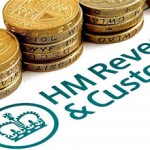Average tax rate paid by FTSE 100 resumes downward slide, falling to 23.1%

- Oil & gas, banks and resources pay highest rates
The average effective rate of tax paid as reported by FTSE 100 companies has resumed its downward slide, dropping to just 23.1% of profits last year down from 25.9% the year before, our research has revealed.
Apart from a brief spike in 2013, effective average tax rates for FTSE 100 firms have otherwise been in long-term decline, falling from 35.8% in 2009.
A company’s ‘effective tax rate’ is the amount of tax charged against profits by a company globally, as a percentage of its overall profits.
Average effective tax rate of FTSE 100 companies 2009-2014
Roy Maugham, Tax Partner says: “Despite an uptick in 2013*, the fact that FTSE 100 companies’ average effective tax rate has fallen once again highlights that the marked downward trend we have seen over the past few years is has not yet run out of steam.”
“Cuts in the corporate tax rate are likely to be playing a large part, as well as businesses making the best use of the tax allowances that they are entitled to.”
We point out that the main corporation tax rate has been cut from 28% in 2008-2010 to 20% this year.
“The policy shift from taxing big business principally through corporation tax, to taxing individuals through VAT has dramatically reduced the tax burden on major UK companies,” says Maugham.
According to HMRC figures, in total £40.7 billion was raised in corporation tax in 2014, while approximately £109.4 billion was raised through VAT.
Oil & gas companies, banks and resources sector pay highest tax rates
Across the board there is significant variation in the effective tax rate FTSE100 companies pay – with some paying less than 1% rising to more than 60% for others.
We state that the industry sectors with the highest average effective tax rates are: oil & gas at 39.2%, banks at 35.5% and resources companies which paid 30.9%.
Roy comments: “The dramatic fall in oil prices we have seen in recent months are weighing down profitability for majors in the oil & gas and resources sectors, with the effect that the level of overall taxation paid by the sector accounts for a far greater percentage of profits.”
“Oil companies that have been lobbying for reduction in taxes on North Sea oil to compensate for the drop in global prices will have been delighted to see the chancellor’s budget promise to reduce tax rates.”
George Osborne said the new measures were worth £1.3bn over five years and would boost flagging North Sea oil production by 15% by the end of the decade.
Property and construction firms have the lowest effective tax rates, with Real Estate Investment Trusts (REITs) paying just 0.1% on average thanks largely to their tax efficient structure.
We point out that although banks are in the top three highest tax rate sectors, other financial services firms come in joint second for the lowest tax rates, with tobacco companies, paying an effective tax rate of 16.1% on average.
Adds Roy, “Banks are still feeling the impact of massive fines which are not tax deductible slashing their profits but not their tax bills. That’s hitting them much harder than the rest of the financial services sector and it’s likely to continue to do so.”
FTSE 100 effective tax rates by sector
| Oil & Gas | 39.20% |
| Banks | 35.50% |
| Resources | 30.90% |
| Insurers | 27.40% |
| Construction | 25.40% |
| Industrials | 25.20% |
| Support Services | 24.70% |
| Food & Drink | 23.60% |
| Technology | 23.60% |
| Retail & FMCG | 23.40% |
| Utilities | 22.70% |
| Aerospace & Defence | 22.20% |
| Media & Telecoms | 21.90% |
| Pharma & medical | 20.80% |
| Leisure & Tourism | 16.20% |
| Tobacco | 16.10% |
| Other Financial Services | 16.10% |
| REITs | 0.01% |
*Caused by the distorting effect of regulatory fines paid by banks and costs of the Deepwater Horizon fines
Source: UHY Hacker Young – Average tax rate paid by FTSE 100 resumes downward slide, falling to 23.1%





























